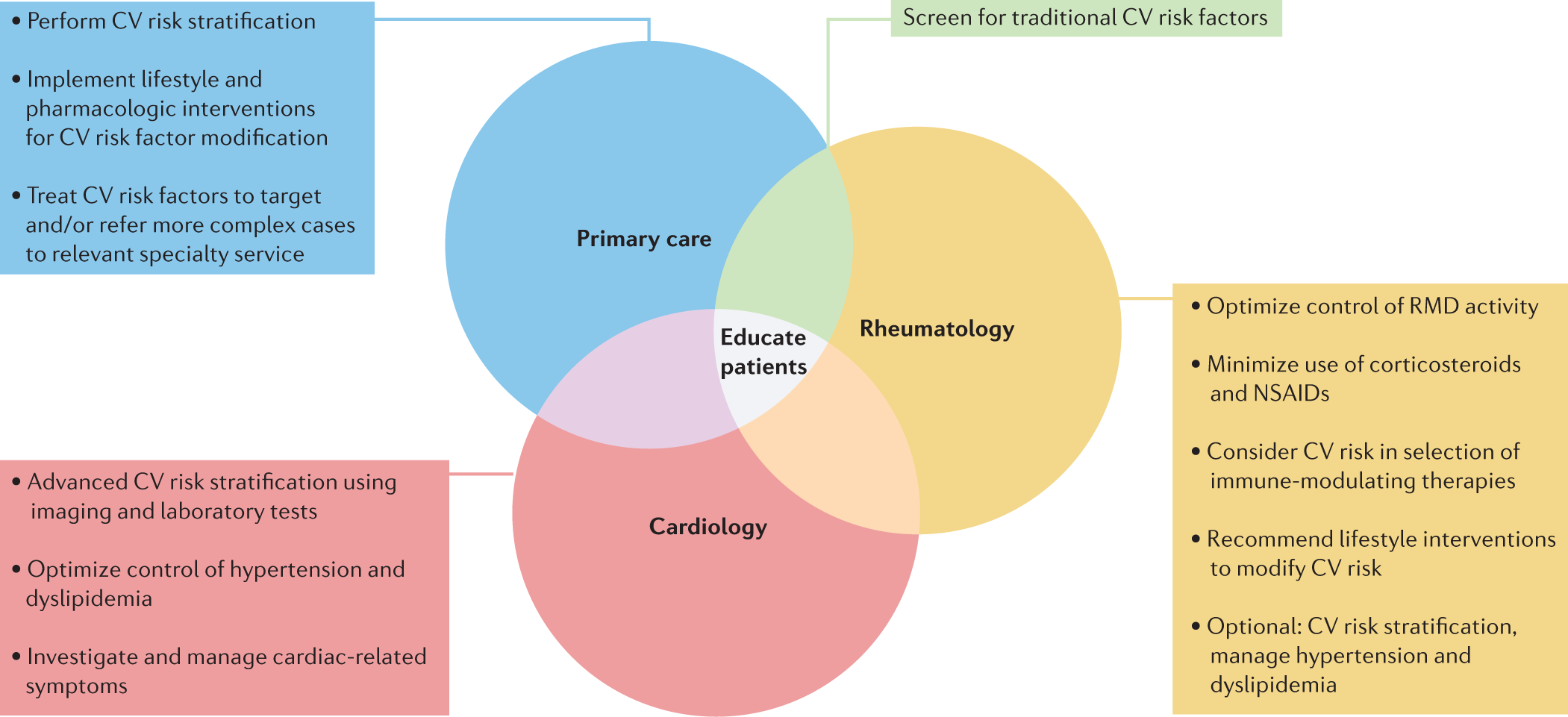Our state-of-the-art methodology combines the latest scientific data to provide a highly personalized risk assessment and in-depth evaluation for both healthy adults and patients affected by immune mediated autoimmune and auto-inflammatory conditions. We use the most advanced genetic, clinical, epidemiological, immunologic and imaging data to assess risk even for people who believe they are too young or low-risk to develop heart disease. People with underlying autoimmune conditions can have a 3-5x increased risk of heart disease compared to people without these diseases, and they tend to develop atherosclerosis at earlier ages than the general population. Specialized treatment can decrease disease activity and also decrease/eliminate well-described cardiac risk factors.

There are several areas where a close collaboration between Rheumatologists and Cardiologists is necessary. Recurrent pericarditis is a disease characterized by recurrent episodes of inflammation of the pericardium, which is the sac containing the heart. The main symptom associated with an episode of pericarditis is chest pain that is typically sharp and worse when taking a deep breath (pleuritic). Shortness of breath (dyspnea) also occurs frequently. Recurrent pericarditis can develop in individuals of any age and can become a chronic, debilitating, inflammatory condition. Novel research has identified the underlying inflammatory mechanisms and newly FDA-approved specialized treatments have become recently available.